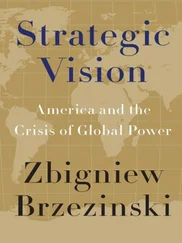But most reviews were favorable and did not dabble in such false equivalency. The American Journal of International Law described Lemkin’s collection of Nazi legislation as a “tour de force.” 31Another reviewer wrote, “The terrorism of the German police is well enough known, but to see matters described in cold legal terminology creates in one perhaps an even greater sense of indignation.” 32At this time Lemkin was somewhat conflicted about the roots of responsibility and the relative role of individual and collective guilt, theories of accountability that continue to compete today. On the one hand, Lemkin urged the punishment of those individuals responsible for Nazi horrors. On the other, he espoused an early version of the theory, put forth again recently by Daniel Jonah Goldhagen in his book Hitler’s Willing Executioners, that ascribed guilt not only to the perpetrators of the crimes but to their fellow citizens who failed to stop them and often appeared actively supportive. 33In Axis Rule Lemkin wrote, “The present destruction of Europe would not be complete and thorough had the German people not accepted freely [the Nazi] plan, participated voluntarily in its execution, and up to this point profited greatly therefrom.” He refused to accept the line that all but the most senior German authorities were just “obeying orders,” insisting that “all important classes and groups of the population have voluntarily assisted Hitler in the scheme of world domination.” 34
In January 1945 the New York Times Book Review devoted its cover to Axis Rule . “Out of its dry legalism,” the reviewer wrote, “there emerge the contours of the monster that now bestrides the earth.” This monster “gorges itself on blood, bestializes its servants and perverts some of the noblest human emotions to base ends, all with the semblance of authority and spurious legality which leave the individual helpless.” The reviewer credited Lemkin with capturing “what Axis rule in occupied Europe means and what it would have meant to us had it ever spread to our shores.” But he faulted Lemkin’s sweeping ascription of blame. By finding “innate viciousness” in the German people, Lemkin was feeding “nazism-in-reverse.” “Surely,” the reviewer wrote, “just because he is a Pole Dr. Lemkin would not want to be held personally responsible for all the acts of the Pilsudski regime.” 35
A Word Is a Word Is a Word
Axis Rule is not remembered for stirring this once and future debate about the nature of individual and collective guilt. Instead, it is known because it was in this rather arcane, legalistic tome that Lemkin followed through on his pledge to himself and to his imagined co-conspirator, Winston Churchill. Ever since Lemkin had heard Churchill’s 1941 radio address, he had been determined to find a new word to replace “barbarity” and “vandalism,” which had failed him at the 1933 Madrid conference. Lemkin had hunted for a term that would describe assaults on all aspects of nation-hood—physical, biological, political, social, cultural, economic, and religious. He wanted to connote not only full-scale extermination but also Hitler’s other means of destruction: mass deportation, the lowering of the birthrate by separating men from women, economic exploitation, progressive starvation, and the suppression of the intelligentsia who served as national leaders.
Lemkin, the former philology student, knew that his word choice mattered a great deal. He weighed a number of candidates. “Mass murder” was inadequate because it failed to incorporate the singular motive behind the perpetration of the crime he had in mind. “Denationalization,” a word that had been used to describe attempts to destroy a nation and wipe out its cultural personality, failed because it had come to mean depriving citizens of citizenship. And “Germanization,” “Magyarization,” and other specified words connoting forced assimilation of culture came up short because they could not be applied universally and because they did not convey biological destruction. 36
Lemkin read widely in linguistic and semantic theory, modeling his own process on that of individuals responsible for coinages he admired. Of particular interest to Lemkin were the reflections of George Eastman, who said he had settled upon “Kodak” as the name for his new camera because: “First. It is short. Second. It is not capable of mispronunciation. Third. It does not resemble anything in the art and cannot be associated with anything in the art except the Kodak.”
Lemkin saw he needed a word that could not be used in other contexts (as “barbarity” and “vandalism” could). He self-consciously sought one that would bring with it “a color of freshness and novelty” while describing something “as shortly and as poignantly as possible.” 37
But Lemkin’s coinage had to achieve something Eastman’s did not. Somehow it had to chill listeners and invite immediate condemnation. On an otherwise undecipherable page of one of his surviving notebooks, Lemkin scribbled and circled “THE WORD” and drew a line connecting the circle to the phrase, penned firmly, “MORAL JUDGEMENT.” His word would do it all. It would be the rare term that carried in it society’s revulsion and indignation. It would be what he called an “index of civilization.” 38
The word that Lemkin settled upon was a hybrid that combined the Greek derivative geno, meaning “race” or “tribe,” together with the Latin derivative cide, from caedere, meaning “killing.” “Genocide” was short, it was novel, and it was not likely to be mispronounced. Because of the word’s lasting association with Hitler’s horrors, it would also send shudders down the spines of those who heard it.
Lemkin was unusual in the trust he placed in language. Many of his Jewish contemporaries despaired of it, deeming silence preferable to the necessarily inadequate verbal and written attempts to approximate the Holocaust. Austrian writer and philosopher Jean Améry was one of many Holocaust survivors estranged from words:
Was it “like a red-hot iron in my shoulders” and was this “like a blunt wooden stake driven into the base of my head?”—a simile would only stand for something else, and in the end we would be led around by the nose in a hopeless carousel of comparisons. Pain was what it was. There’s nothing further to say about it. Qualities of feeling are as incomparable as they are indescribable. They mark the limits of language’s ability to communicate. 39
The suffering inflicted by Hitler fell outside the realm of expression.
But Lemkin was prepared to reinvest in language. New to the United States and wracked by anxiety about his family, he viewed the preparation of Axis Rule and the coinage of a new word as a constructive distraction. At the same time, he did not intend for “genocide” to capture or communicate Hitler’s Final Solution. The word derived from Lemkin’s original interpretations of barbarity and vandalism. In Axis Rule he wrote that “genocide” meant “a coordinated plan of different actions aiming at the destruction of essential foundations of the life of national groups, with the aim of annihilating the groups themselves.” 40The perpetrators of genocide would attempt to destroy the political and social institutions, the culture, language, national feelings, religion, and economic existence of national groups. They would hope to eradicate the personal security, liberty, health, dignity, and lives of individual members of the targeted group. He continued:
Genocide has two phases: one, destruction of the national pattern of the oppressed group; the other, the imposition of the national pattern of the oppressor. This imposition, in turn, may be made upon the oppressed population which is allowed to remain, or upon the territory alone, after removal of the population and colonization of the area by the oppressor’s own nationals. 41
Читать дальше












